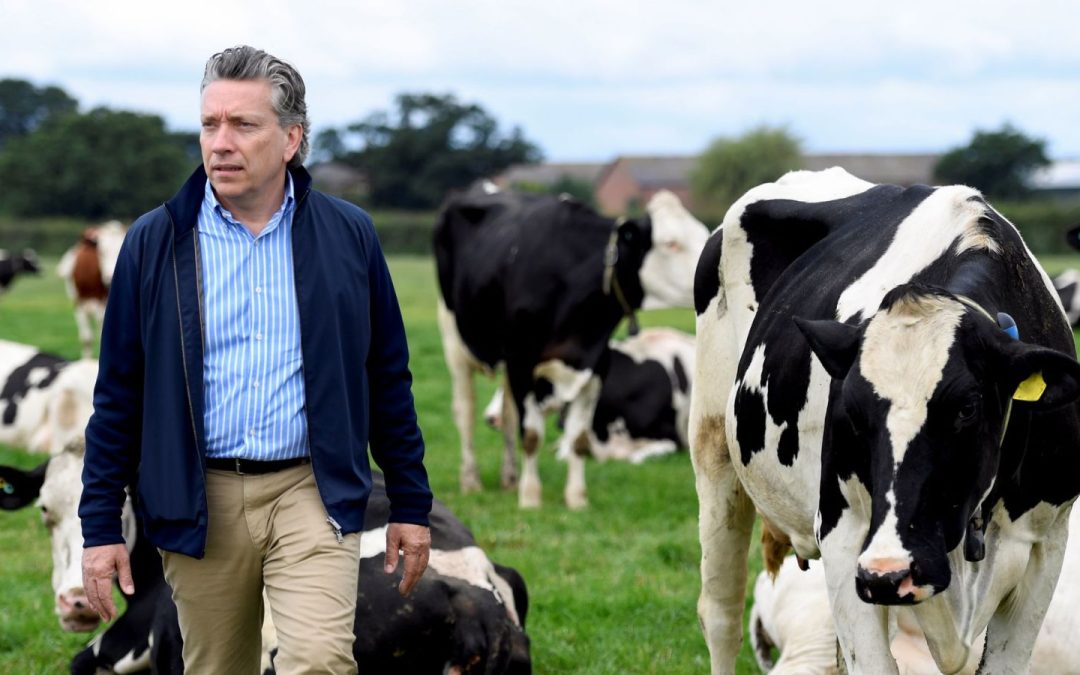Arla Foods UK managing director Bas Padberg has warned that the nation’s food security is “under pressure without a change of course”.
Arla Foods UK has conducted its annual survey across its 1,900 British farmers, finding that locating skilled and experienced employees to work on its farms has continued to be a “chronic issue”.
The company said that similarly to 2024, around five in every six farmers who have tried to fill a vacancy say that they have had very few qualified applicants – or no applicants at all. This has been difficult for some time, said Arla, but it has got progressively worse over the years since Arla’s research started (around 84% now compared to 79% in 2021).
Findings showed that as a result of the continuing challenge of finding the right people, 6% have already cut output, with 13% saying that they will leave farming altogether in the next 12 months if the situation doesn’t improve.
The results highlighted the challenge of “expanding the pool of potential recruits” by bringing a more diverse group of people from outside the sector into agriculture. More than 47% of farmers are aged 55 and over, and only 3% of farmers say they are first-generation while more than 66% have passed their farms down at least four generations.
“We need to act quickly and we need practical steps that the industry, the education sector and Government can take together to support more opportunities for inclusion and growth.”
Bas Padberg, managing director of Arla Foods UK, commented: “Farmers are responsible for feeding a nation with over 98% of people having milk in their fridge. What we’re seeing, is the real impact of these workforce shortages on our farming industry, whether that’s in higher costs or lower milk production.
“The effect of this is ultimately going to be seen in the price and availability of products on the supermarket shelves, affecting the millions of people that rely on dairy as a source of nutrition in their diet.
“We know the Government has acknowledged the problem and welcome a focus on talent and development as part of the forthcoming food strategy. But we need to act quickly and we need practical steps that the industry, the education sector and Government can take together to support more opportunities for inclusion and growth.”
Government urged to promote food career prospects
Arla is now calling for action to be taken to “tackle misconceptions about food and farming that discourage people from considering the sector for a career”.
Heather Davies of the Arla board of representative added: “Recruiting for farming roles remains a significant challenge, with over 90% of applicants coming to us on our farm without any previous experience in agriculture.
“There is a clear disconnect between the education system and pathways into agriculture, and perhaps an even wider gap between people and the origins of their food. Despite the incredible variety and fulfilment that a career in farming offers, we struggle to attract people to the industry. This is an industry that will always need skilled people, and we must do more to communicate the value and potential of a career in agriculture.”
Arla went on to say that workforce shortages were also an issue across the wider supply chain. With an average recruitment time of 116 days to bring in engineers, the company stated that there is also a “clear need” to promote career prospects in manufacturing, with Government help “needed to deliver a step change in approach before UK food security is put at serious risk”.
Padberg concluded: “We really see a bright future for UK food manufacturing and this is signalled in the £390 million investment we are making in our sites. We want more people to be part of this future and help us to produce nutritious and exciting products that people want to eat.
“But as with farming, we have to look at what is impacting our ability to recruit skilled workers, and find ways of working together with the Government to protect the security of our food.”









